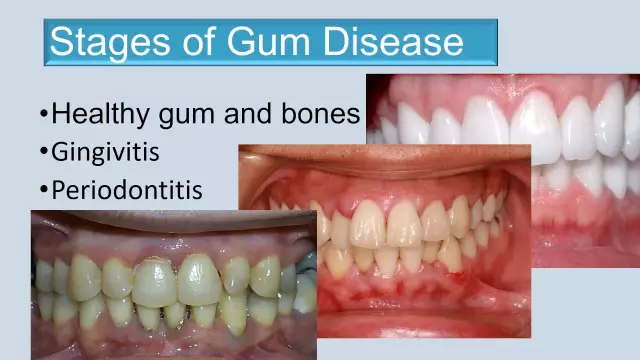- Author Curtis Blomfield blomfield@medicinehelpful.com.
- Public 2023-12-16 20:44.
- Last modified 2025-01-23 17:01.
Most often, Burkitt's lymphoma is diagnosed in people living in Oceania and Africa. Only recently have single cases of a similar disease been reported in the United States and Europe. Fortunately, in the early stages, the disease is most often treatable.
Causes of lymphoma

Burkitt's lymphoma is a malignant tumor prone to rapid aggressive growth. The appearance of such a neoplasm is the result of a malignant degeneration of B-lymphocytes.
Until recently, Burkitt's lymphoma was associated with exposure to radiation and dangerous carcinogens. However, recent studies have shown that malignant degeneration in this case is associated with viral activity. In most patients with such a tumor, the Epstein-Barr virus was found in the body. It is believed that after binding a viral particle to a lymphocyte, its uncontrolled division is possible - this is how a tumor is formed.
Burkitt's lymphoma is most commonly diagnosed in children between the ages of three and sevenyears. However, the development of the disease is not excluded in adulthood.
Burkitt's lymphoma: symptoms

According to statistics, in about 30% of cases, the tumor affects the intestines. Often lymphoma is formed in the kidneys, ovaries, testicles, stomach, pancreas, adrenal glands, jaw. Much less often, the salivary glands and thyroid gland suffer from an illness.
Malignant degeneration of cells begins in the lymph node. At this stage, the symptoms of lymphoma resemble those of a cold. Patients complain of chills, fever, swollen lymph nodes. Only after this, the rapid growth of the neoplasm begins.
Symptoms that accompany Burkitt's lymphoma depend on its location. For example, a tumor formed near the salivary glands during growth leads to deformation of the bones of the face and displacement of the nasal septum. A neoplasm in the intestine can provoke the development of intestinal obstruction. If the kidneys are affected, then the gradual development of renal failure is not excluded.
In any case, a rapidly growing tumor affects nearby organs, disrupts their normal functioning, and compresses blood vessels and nerve endings.
How is Burkitt's lymphoma treated?

As a rule, a biopsy with further histological examination of tissues is necessary to make an accurate diagnosis. As for therapy, it depends on the severity of the disease, the size of the tumor and the rate of its growth.
In the initial stages, patientsundergo chemotherapy. Since most often the disease is associated with a viral infection, they resort to immunomodulatory and antiviral therapy - patients are prescribed interferon in large doses. It has been proven that taking such a drug speeds up the healing process and enhances the effect of chemotherapy.
If the tumor is too large and poses a threat to the life of the patient (for example, lymphoma in the salivary glands often passes to the tissues of the pharynx and trachea), then a surgical operation is necessary to remove it. After that, chemotherapy and antiviral treatment are prescribed, which help to destroy the remaining malignant cells and prevent the development of relapses.






